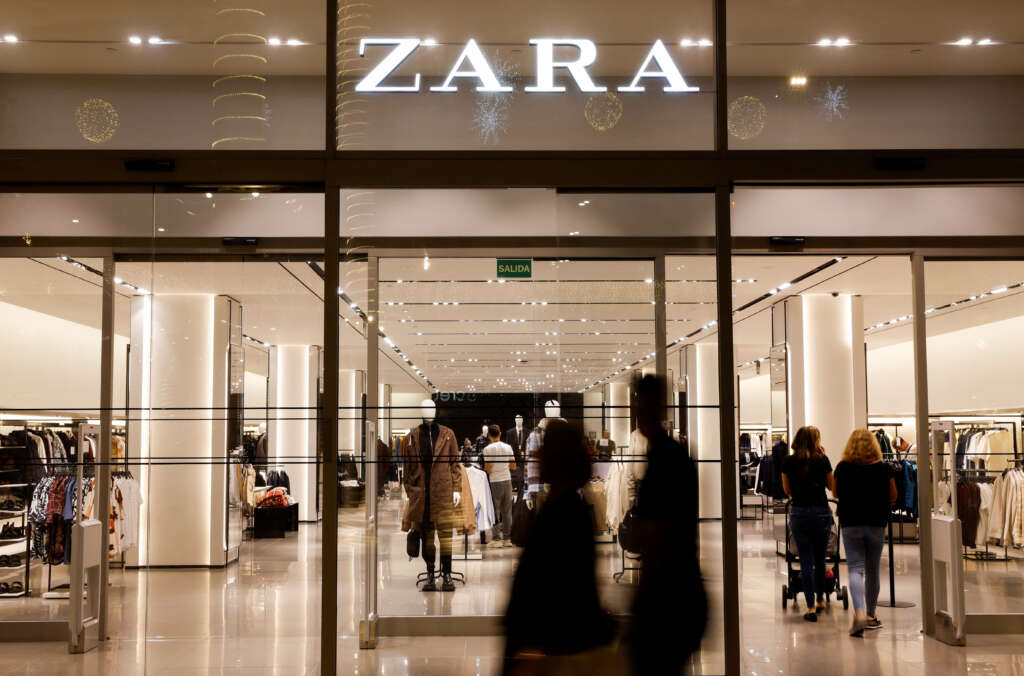
Zara owner boosts sustainability goals as fast-fashion feels the heat
By Corina Pons and Helen Reid
MADRID/LONDON (Reuters) -Zara owner Inditex said on Tuesday it will look to recycling and sustainably farmed crops to reduce its environmental impact by 2030, as fast-fashion retailers face growing pressure to cut waste.
By the end of the decade around 40% of the Spanish group’s fibres will come from conventional recycling and 25% from sustainably farmed crops, Chief Executive Oscar Garcia Maceiras said, revealing new sustainability targets at the annual shareholders’ meeting in A Coruna, northern Spain.
Another 25% will come from “next-generation” materials in which the group is investing, and the remaining 10% from other sustainable sources, the company said.
The new targets come as the European Commission is drawing up regulations to make clothing retailers pay for the waste they produce, arguing that fast-fashion companies “encourage customers to shop impulsively and incentivise purchasing larger quantities of clothes”.
Inditex previously had targets to use more sustainable cotton, linen, polyester, and fibres made from wood pulp, but did not have an overall goal for recycled fibres.
“Moving forward on sustainability is natural for us,” said Inditex Non-Executive Chair, Marta Ortega, in brief comments to investors at the AGM. She called the new targets a “great challenge”.
Inditex has achieved record sales, margins and profits since Ortega, the heir to the family business, took over as chair in April 2022. Its shares are up 38% this year.
Inditex shows no sign of slowing production. The company placed 621,244 tonnes of garments on the market last year, according to its 2022 annual report, 10% more than in 2021.
“Over the long term, we expect Inditex to transition toward a circular model for fashion, the pace of which will be metered by customer demand and regulation,” said Adam Gofton, portfolio manager at Mackenzie Investments in Toronto, which holds shares in Inditex.
“Inditex’s scale leaves the company well positioned to respond to regulatory pressure (scale means any incremental fixed costs can be spread over larger number of units),” he added.
(Reporting by Corina Pons and David Latona in Madrid and Helen Reid in London; Editing by Andrei Khalip, Mark Potter and Sharon Singleton)


